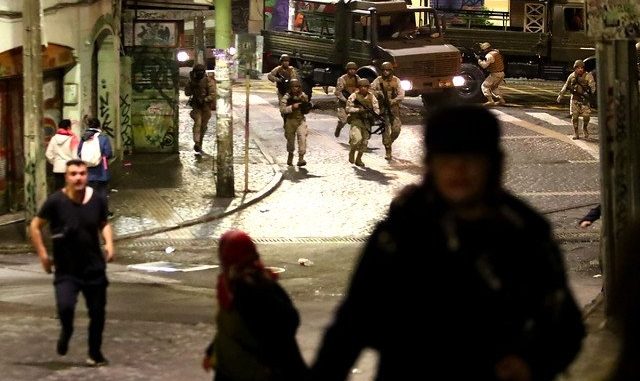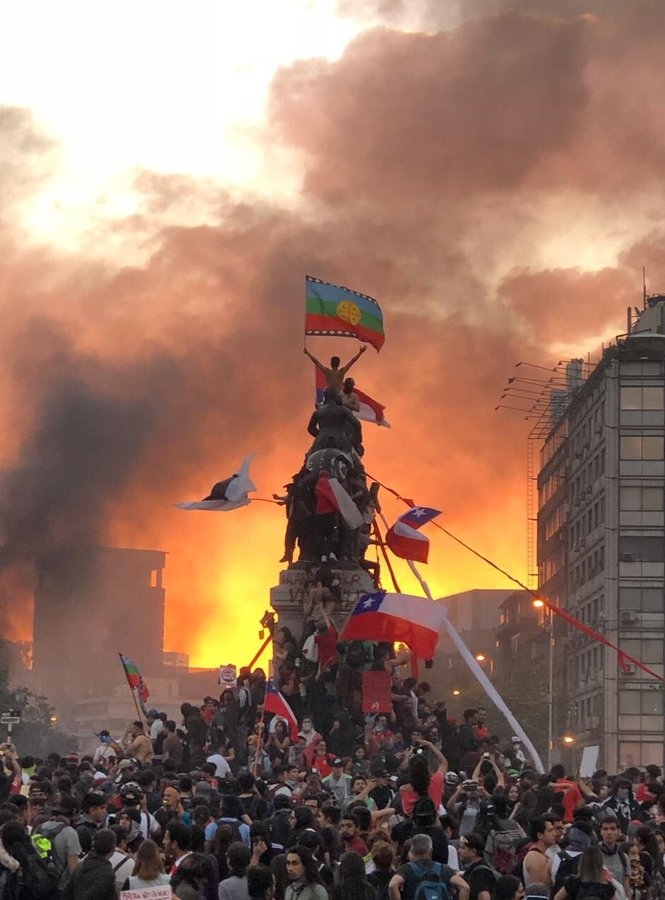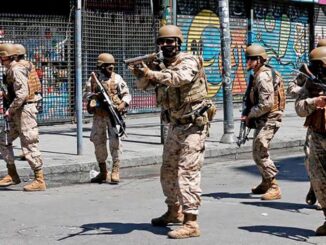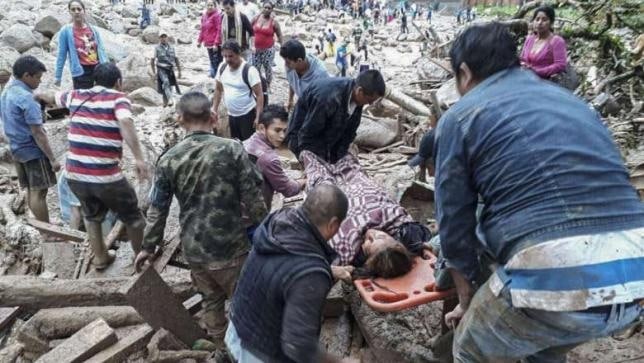
NEW YORK – The United Nations will send a special mission to investigate human rights abuses in Chile, where a general strike went into its second day following a week of street protests that left 18 dead.
President Sebastian Piñera tried to ease tensions by announcing a plan to end a highly unpopular state of emergency and nighttime curfews.
“Having monitored the crisis in Chile since it began, I have decided to send a verification mission to examine the allegations of human rights violations,” the head of the UN Human Rights Council and former Chilean president, Michelle Bachelet, said on Thursday.
Having monitored the crisis in #Chile since it began, I have decided to send a verification mission to examine the allegations of #HumanRights violations. Parliamentarians and the Government have both expressed a desire for a @UNHumanRights mission.
— Michelle Bachelet (@mbachelet) October 24, 2019
Protests erupted a week ago, initially against a metro fare hike but spiraled into general discontent at low salaries and pensions, high costs of health care and education, and a yawning gap between rich and poor.
While much of it has been peaceful, metro stations were destroyed, supermarkets torched and looted, traffic lights and bus shelters smashed and countless street barricades erected and set alight.
Some 20,000 police and soldiers have been deployed in the city, using tear gas and water cannon to disperse demonstrators.
But they have also been responsible for five of the deaths, while social media have lit up with accusations of torture and abuses by the security forces.
Industrial action called by Chile’s most powerful union, the Workers’ United Center of Chile (CUT,) that began on Wednesday continued, but in central Santiago people seemed to be going to work as normal with shops and businesses opening their doors.
Overnight Wednesday was the calmest yet of five nighttime curfews, while a two-week state of emergency is now in its sixth day.
“We’re working on a plan to normalize life in our country … to end the curfew and hopefully to lift the state of emergency,” Piñera said.
The national human rights institute (INDH) says 535 people have been injured – 239 by firearms – and 2,410 detained.
Nine of the deaths came in fires started by looters.
As soldiers guarded Santiago’s metro stations many of the city’s seven million inhabitants returned to normality for the first time since the crisis erupted.
Three of the seven metro lines — which usually carry three million people a day — were operating on Thursday, backed up by 6,000 buses.
Most of the supermarkets that had remained closed on Wednesday opened their doors and almost all schools in the capital held classes.
On Wednesday, four hotels were looted and residents wearing yellow vets patrolled their own neighborhoods to guard against burglary.

Chile, usually one of the most stable countries in Latin America, has seen its worst violence since returning to democracy after the 1973-1990 right-wing dictatorship led by General Augusto Pinochet.
In a poll by Ipsos, two-thirds of respondents said their economic, health and pensions situation was “unequal and unfair.”
Foreign Minister Teodoro Ribera told reporters next month’s APEC trade summit would go ahead despite the protests.
US President Donald Trump and his Chinese counterpart Xi Jinping are among those expected to attend the November 16-17 meeting to discuss ending their trade war.–MercoPress



